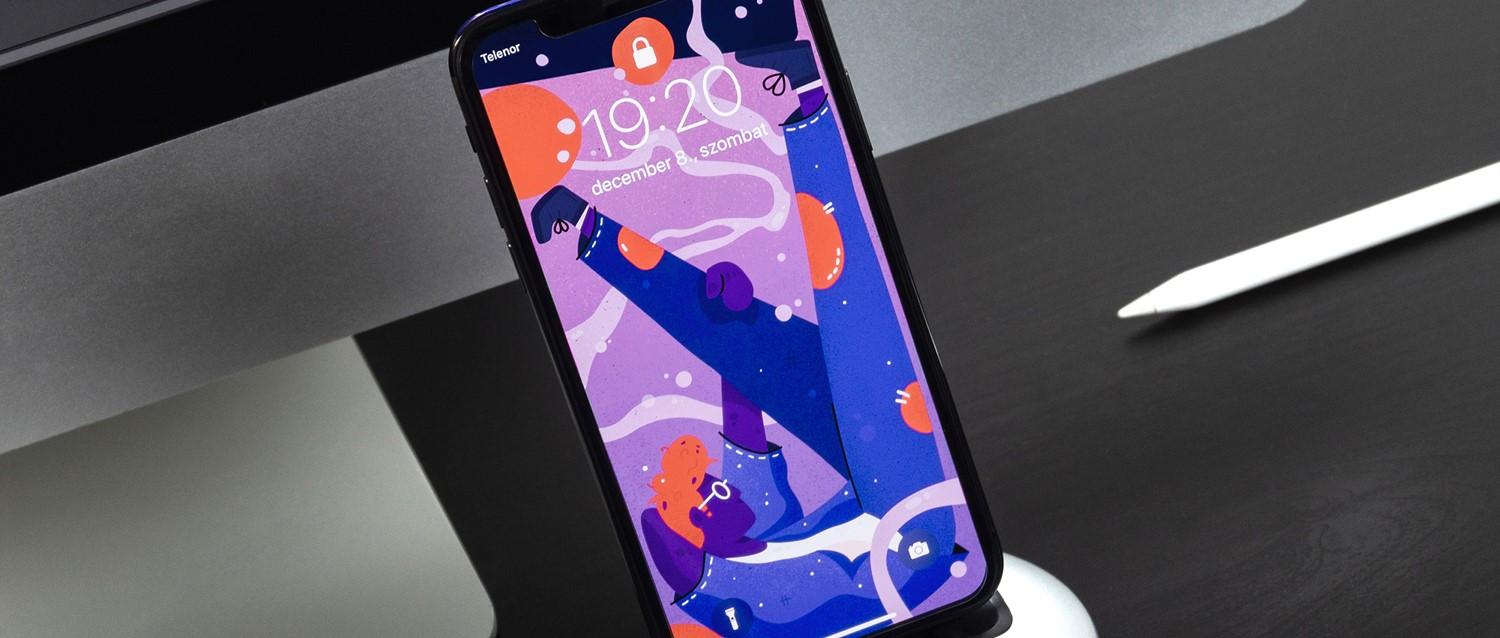
Le pourrissement du cerveau est-il réel ? Voici ce qu'en disent les experts en santé cérébrale
Peer reviewed by American Heart Association Authored by Laura WilliamsonOriginally published 14 Aug 2025
- TéléchargerTélécharger
- Partager
Doomscrolling, Instagram obsessions, mindless YouTube video viewing - distracting behaviours, yes, but can they actually rot your brain?
Here we look at research into the effects of too much screen time and whether brain rot is a real thing.
Dans cet article :
In 2024, Oxford University Press designated 'brain rot' as its word of the year, defining it as the 'supposed deterioration of a person's mental or intellectual state' caused by overconsumption of, 'trivial or unchallenging" material found on social media and other online platforms.'
"It's what happens when you consume too much low-quality online content, which is like junk food for the brain," says Dr Andreana Benitez, associate professor, department of neurology, Medical University of South Carolina, USA.
But whether that content is actually harming the brain - and how - remains unclear.
Screen habits can shape health
According to research from the Centers for Disease Control and Prevention1, one half of teenagers in the US spend four hours or more looking at screens each day. Global estimates suggest2 adults may be online an average of more than six hours per day. There are no official health guidelines for how many hours of daily screen time are appropriate for teens or adults.
Researchers lack sufficient data to fully understand the concept of brain rot and what it might lead to. "There really isn't a coherent science around it," Benitez says. However, CDC data shows that 1 in 4 teenage frequent scrollers report feeling anxious or depressed.
Some research suggests problems with heavy online use may begin quite young. Adolescents who spend greater amounts of time in front of screens may be more likely to experience mental health issues, including depression, anxiety, ADHD, and oppositional defiant disorder. They are also more likely to have related physical symptoms such as pain, dizziness, or nausea3.
Other studies have potentially linked brain rot to emotional desensitisation, cognitive overload, negative self-worth, and impaired executive function skills - including memory, planning, and decision-making.
Rethinking our digital diet
While there's no evidence that hours of daily screen time are changing the structure of the human brain, it's what's not happening during those hours that could be harmful, especially for young people whose brains are still developing, according to Dr Costantino Iadecola, director and chair, Feil Family Brain and Mind Research Institute, Weill Cornell Medical Center, New York City, USA.
He says: "The more time young people spend in front of screens, the less time they spend being physically active or having the face-to-face human interactions that supply the developing brain with critical complex sensory and emotional input."
Iadecola says that brain development requires a diversity of exposures: "When you are on your phone, you are not getting these other experiences. We are substituting artificial interactions for human interactions, and artificial interactions lack the complexity of the human experience - the verbal, sensory and emotional reactions we have after interacting with people."
Poursuivre la lecture ci-dessous
Content matters
It's not just screen time that matters – it's also screen content. Benitez says: "If you consume excessive amounts of low-quality online content, you are more likely to be exposed to information that might distort your perception of reality and harm your mental health," She adds that cycling through large amounts of negative content can also leave you mentally exhausted.
But how much is too much has yet to be determined. Sticking to the junk food analogy, Benitez likens short periods of screen time to the occasional junk food snack. "One bag of crisps might not be that bad, but if you're eating three at a time, that might be a problem," she says.
How to have smarter screen time
Helping kids - and adults - consume a healthier online diet is not easy, Benitez says, because so much of modern life, from schoolwork to shopping, entertainment and socialising, involves online applications.
She says: "With kids, screens are a part of their lives. But, it's incumbent upon adults to curate the content, make sure they are consuming content that's good for them - and in a way that does not result in mental fatigue. We need to make sure they are engaging in critical thinking as they engage with screens."
Benitez also warns children and adults against scrolling before bedtime saying that thought provoking information and being exposed to light when your body should be winding down for sleep might affect your sleep.
The American Academy of Pediatrics4 (AAP) suggests families develop screen-time plans together and encourage usage that builds creativity and connections with family and friends. It also suggests parents emphasise the importance of offline activities such as sports, music, art and other hobbies.
The AAP also notes that some screen use may be 'healthy and positive,' a point on which both Benitez and Iadecola agree with. "You could be consuming good content," Benitez says. "There's a value judgment in this." Iadecola suggests making sure online usage is purpose-appropriate. "It's OK to use the technology for whatever task is at hand. The problem is when it becomes addictive behaviour. Everything in moderation." he says.
Cet article est publié avec l'aimable autorisation de l American Heart Associationqui s'efforce de sauver et d'améliorer des vies depuis plus de 100 ans.
Références
Choix des patients pour Le bien-être mental

Santé mentale
La tenue d'un journal peut-elle contribuer à votre santé mentale ?
Il existe un certain nombre de moyens recommandés pour vous aider à gérer le stress. Il s'agit notamment de la pleine conscience, de la méditation et de l'exercice physique, qui sont tous de bonnes options. Cependant, de nombreuses personnes essaient de tenir un journal comme outil d'auto-support pour leurs soucis.
par Victoria Raw

Santé mentale
Pourquoi promener votre chien peut améliorer votre santé mentale
Dogs love daily walks because they get to sniff, exercise and spend quality time with their owners - and if they’re lucky, chase a tennis ball too. The good news is that owners also receive the benefits of these walks, as spending time in nature, exercising and getting fresh air can work wonders for our mental health.
par Lydia Smith
Historique de l'article
Les informations contenues dans cette page ont été évaluées par des cliniciens qualifiés.
Next review due: 14 Aug 2028
14 août 2025 | Publié à l'origine
Auteur: :
Laura Williamson
Examiné par des pairs
Association américaine du cœur

Demandez, partagez, connectez-vous.
Parcourez les discussions, posez des questions et partagez vos expériences sur des centaines de sujets liés à la santé.

Vous ne vous sentez pas bien ?
Évaluez gratuitement vos symptômes en ligne